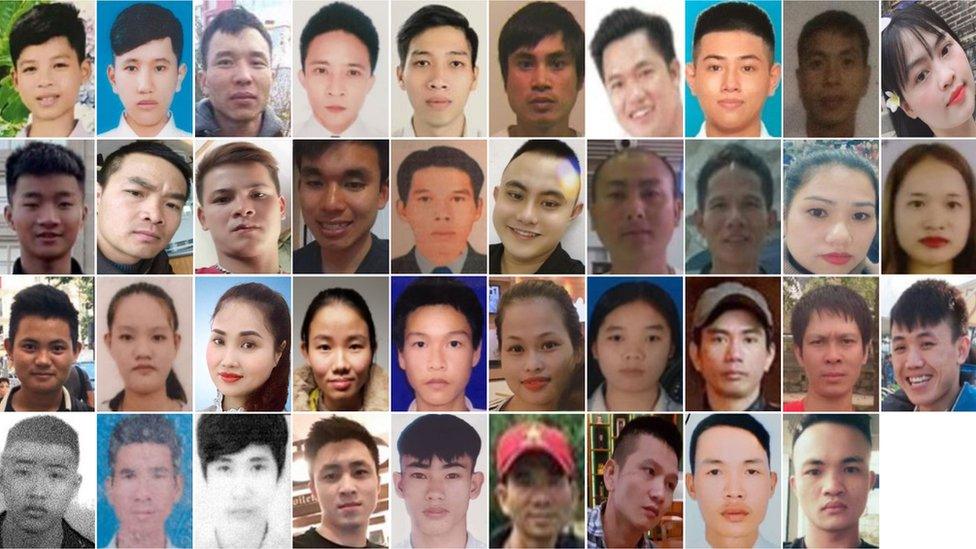Essex lorry deaths: Irish smuggling connection
- Published
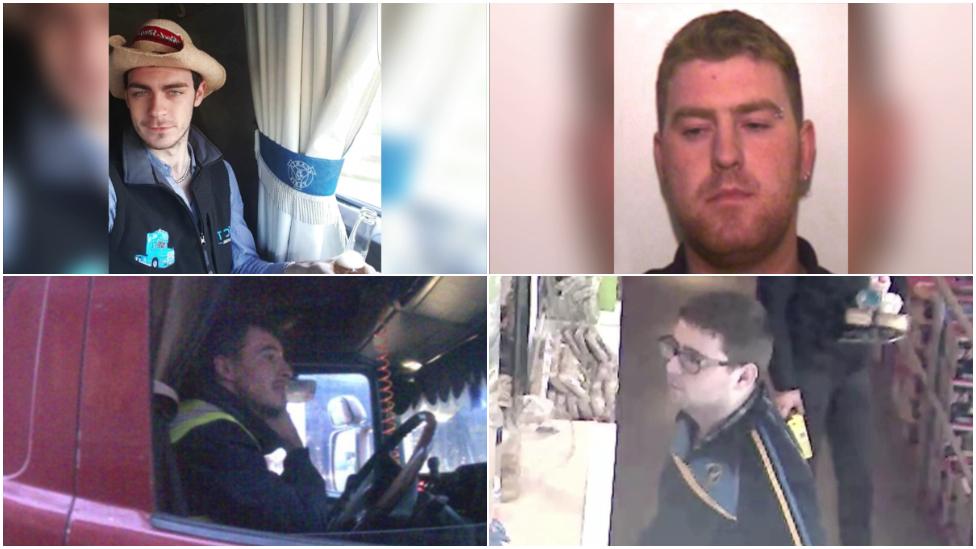
Maurice Robinson (top left) and Ronan Hughes (top right) admitted manslaughter earlier in 2020 while Eamonn Harrison (bottom right) was found guilty of manslaughter and Christopher Kennedy of conspiracy on Monday
One of the ringleaders of the gang which allowed 39 Vietnamese people to die in the back of a lorry was an Irish haulier with a history of smuggling.
Ronan Hughes lived in Tyholland, County Monaghan, close to the Irish border.
Hughes, 41, and lorry driver Maurice Robinson, 26, had previously admitted the manslaughter of 39 Vietnamese migrants who were found dead in a lorry trailer in Essex in October 2019.
On Monday, two other men were found guilty of manslaughter: Eamonn Harrison, 24, who dropped off the trailer at the Belgian port, and people smuggler Gheorghe Nica, 43, were convicted by an Old Bailey jury.
Lorry driver Christopher Kennedy, 24, from County Armagh, who collected the trailers from Purfleet on two successful runs, claimed he thought he was transporting cigarettes, but was found guilty of conspiring to assist illegal immigration.
BBC News NI analyses the Irish smuggling connection to the fatal case.

Ringleader: Ronan Hughes
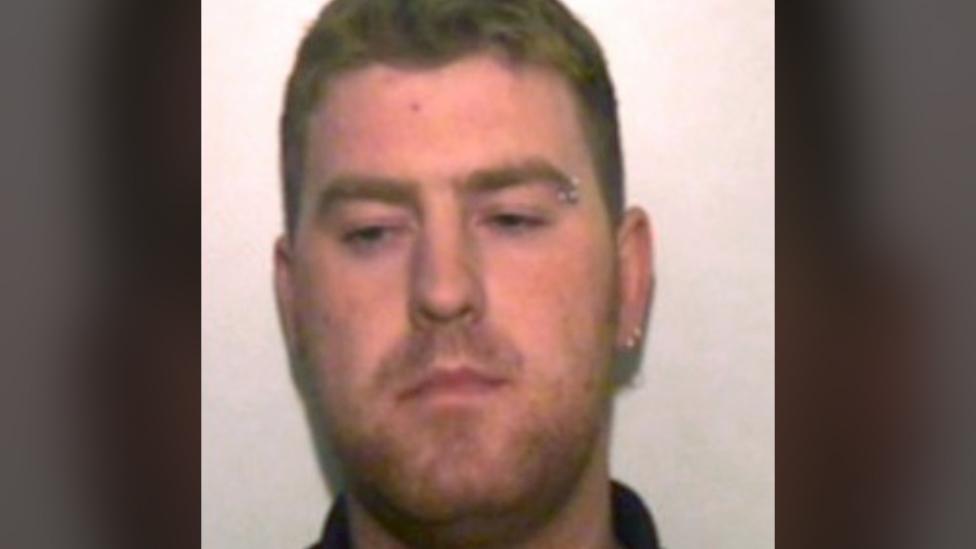
Ronan Hughes admitted manslaughter and conspiring to assist unlawful immigration
Ronan Hughes made a career in Europe out of cross-border crime.
He pleaded guilty to the manslaughter of the 39 people found in the sealed container in Essex last year but it was not his first offence.
Ten years previously he was caught smuggling cigarettes. It did not deter him.
The smuggling of people, who were each prepared to pay up to £10,000 to be taken to the UK, gave Hughes a way to earn large amounts of money in a short space of time.
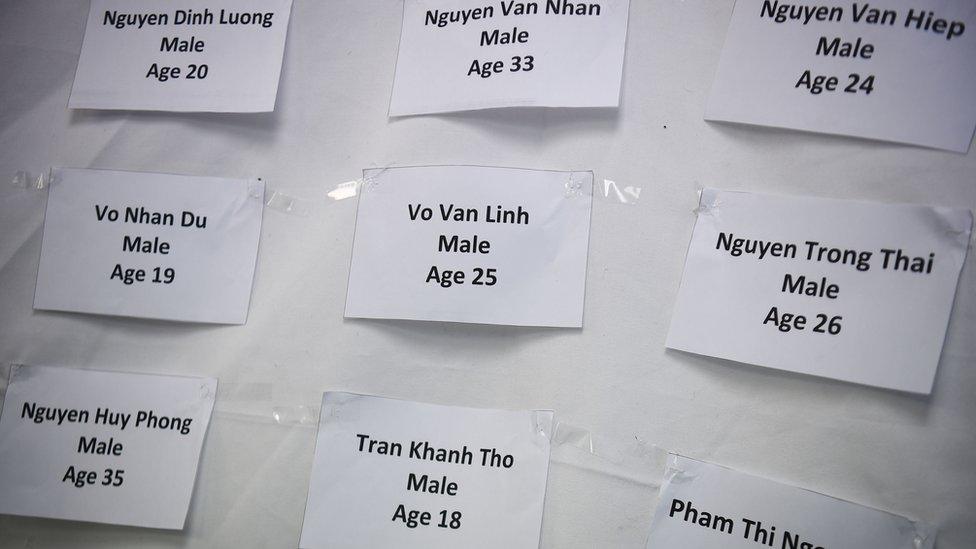
Victims' names were placed on a wall as part of a memorial shrine in Hackney on the first anniversary of their deaths
He knew it was a risky business. That is one of the reasons he got others to do the driving.
While container-loads of people were being dropped off at the port in Zeebrugge in Belgium in October last year, Hughes was a safe distance away, dictating instructions by telephone.
He used a number of unregistered, pre-paid 'burner' phones, which he could throw away if he feared they could be used to catch him.
It is not clear exactly how long he had been smuggling people, but in court he pleaded guilty to conspiracy to assist unlawful immigration dating back to May 2018.
'Greed'
When Irish police arrested him in County Monaghan earlier this year, they found £10,344 in cash in his house.
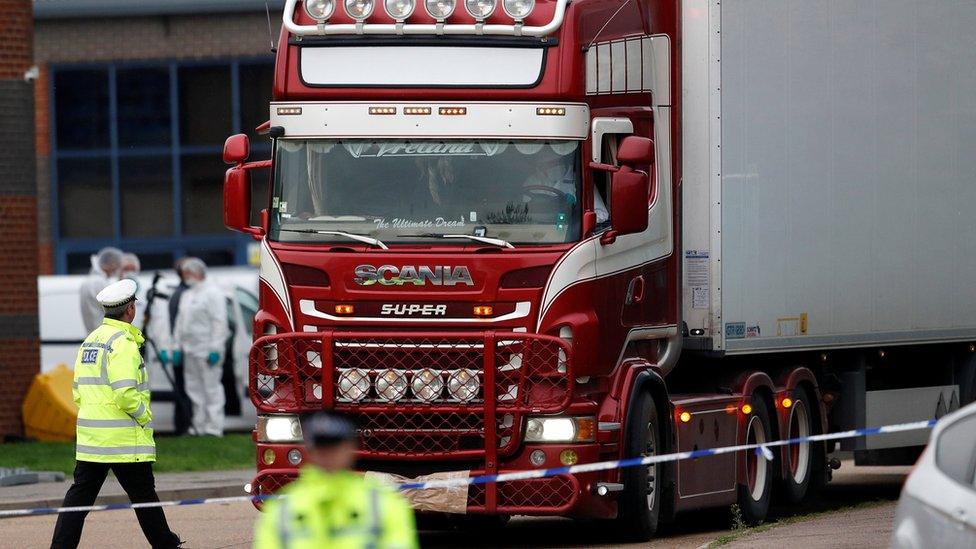
The bodies of 39 Vietnamese nationals were discovered in a refrigerated trailer on 23 October last year
Before his extradition to the UK, Dublin High Court was told a substantial amount of money linked to Hughes had been found in a number of different bank accounts and that he had recently bought a 2019 BMW X5, valued at €108,000 (£97,000).
Police believe Hughes was greedy.
That is why he was prepared to put 39 people in the back of a sealed trailer for 12 hours, in spite of the obvious risks.
What mattered most was the money.
He ran a haulage company. He was involved in legitimate international operations, delivering wine and biscuits, but as his people-smuggling racket grew, he sometimes mixed legal and illegal loads.
The other key man in the smuggling operation was Gheorge Nica, a British Romanian based in Essex who was Hughes's partner in crime.
While the Irishman directed the operations and booked the ferries from mainland Europe to England, Nica sorted the transport on the final leg of the journey once container-loads of people arrived at an agreed rendezvous point in Essex.
On at least two occasions in early October last year, it worked.
On the third occasion, it went wrong and it cost 39 Vietnamese people their lives.
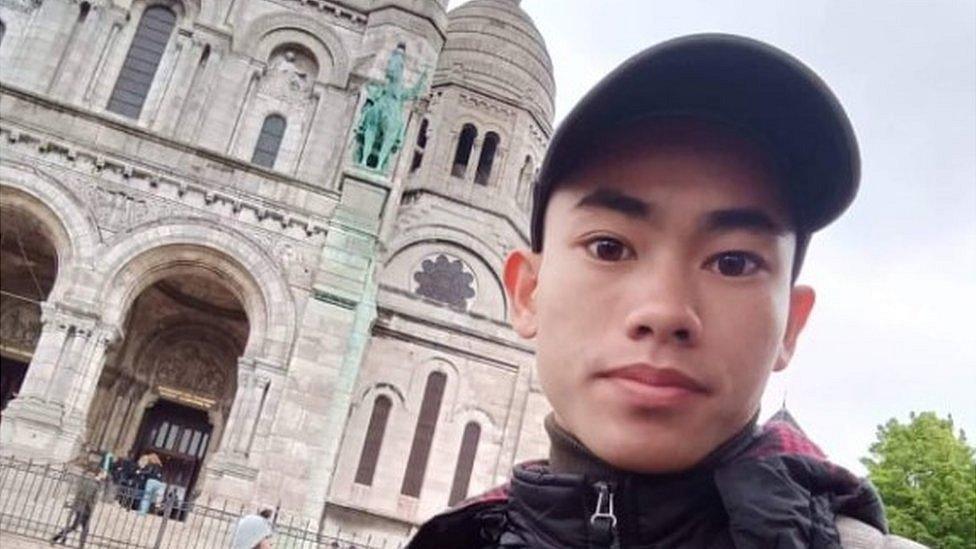
Nguyen Dinh Luong was one of 39 people who died in the container
Hughes thought he had got away with it. He hoped by allowing others to do the driving, he could not be caught.
He was mistaken.
From early in the investigation, the police knew exactly who was in charge of the smuggling ring. They also knew the identity of the young drivers who agreed to do the dirty work.

The man who found the bodies: Maurice Robinson
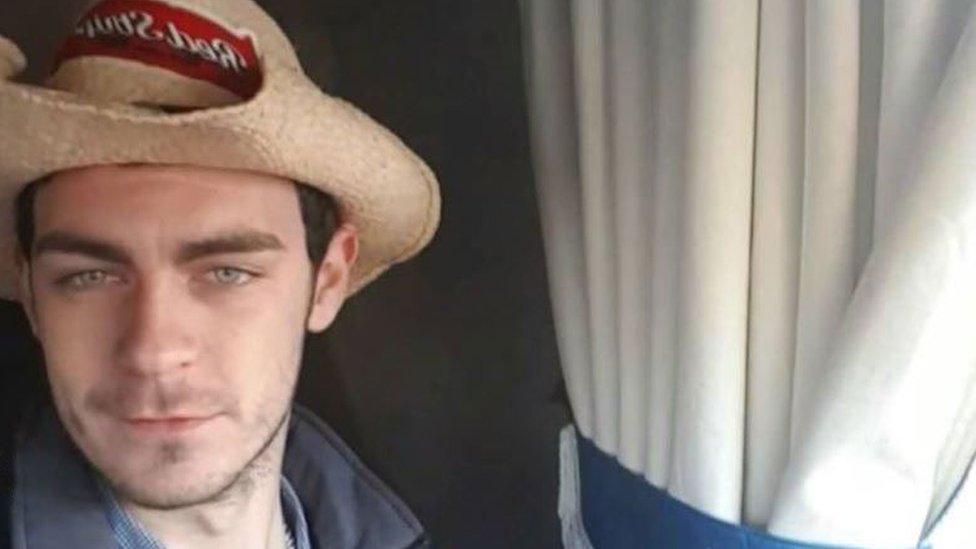
Maurice Robinson described finding "loads" of migrants "jammed" into his trailer in a 999 call
Robinson, 26, from Craigavon in County Armagh, Northern Ireland, was the driver who discovered that the 39 people in the back of the container were all dead.
He picked it up from Purfleet port in Essex.
After finding the 39 bodies, he did not phone the emergency services immediately, he phoned his boss Ronan Hughes.
'Give them air quickly, but don't let them out'
It was only 20 minutes later that he dialled 999.
It was too late. Everyone inside had died a few hours earlier on the sea crossing from Belgium.
Within an hour, Robinson was arrested and later admitted his guilt.
He knew he was picking up a container with people inside.
Hughes sent him a message on Snapchat beforehand telling him: "Give them air quickly, but don't let them out."
Robinson replied with a thumbs-up emoji.
He knew why they needed air. There is a limited time that anyone can survive in a sealed container.
Essex lorry deaths: CCTV shows arrival at industrial park
People smuggling is a dangerous business.
At the same time, it is also lucrative. For every person Robinson successfully smuggled, he could earn up to £1,500. The more people in the back of his lorry, the more money he could make.
When he rang 999, he told the operator about the people in the container.
"They're all lying on the ground," he said.
When asked how old they were, he replied: "I don't really want to look in, to be honest with you."
He did not want to face the reality of what he had done.
He had been part of an international organised crime operation that had left 39 men, women and children dead.
Parts of a mobile phone were found down a drain close to where he parked his lorry.
Robinson was arrested at the scene and later charged with 39 counts of manslaughter and conspiracy to assist unlawful immigration.
He pleaded guilty.
Robinson was the first member of the gang to be caught but he was not the last.

The last person to see victims: Eamonn Harrison
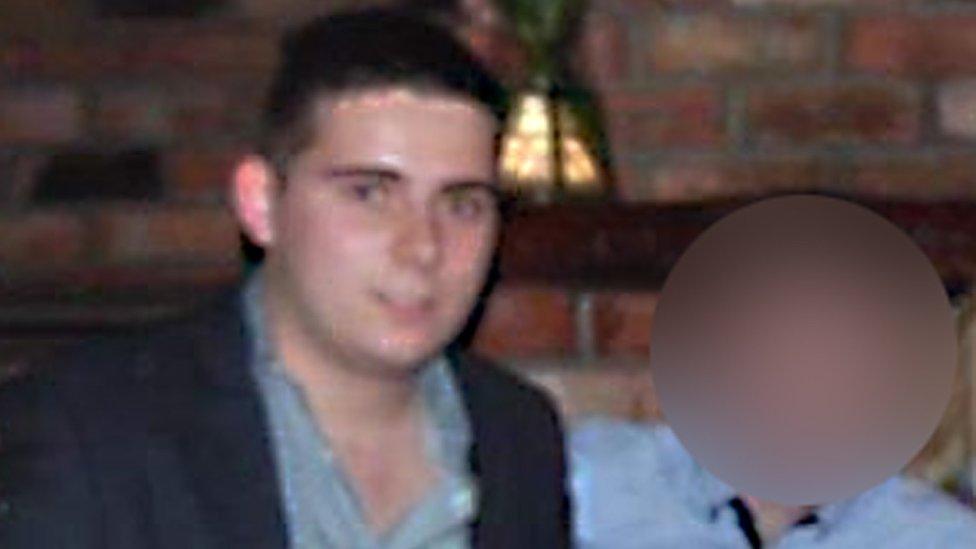
Harrison, 23, from Mayobridge, County Down, was the last person to see the 39 Vietnamese nationals alive. He picked them up and drove them to the port of Zeebrugge in Belgium.
He delivered them in a sealed container that was sent unaccompanied across the English Channel to Essex.
He insisted in court he thought he was carrying stolen lorry-parts. He said he had been watching Netflix in his cab while the loading took place.
The truth was he knew exactly what was going on. He had done it before, twice in the previous two weeks.
He was arrested coming back to Ireland via Dublin port, four days after the 39 Vietnamese nationals died. He was subsequently extradited to the UK.
When it came to picking up people on mainland Europe to smuggle into England, Harrison was one of the main men in this smuggling ring.
He had been involved for some time, as far back as May 2018 when he was stopped in northern France near the entrance to the Channel Tunnel with 18 Vietnamese people in the back of his lorry, hidden amongst boxes of waffles.
A seal on the back of his trailer had been broken and glued back together. He was issued with a civil penalty notice.
A year later, in May 2019, he crashed a vehicle when driving while drunk in north west Germany, writing off the tractor unit and damaging the load.
During his trial, he said this meant he owed money to his boss, Ronan Hughes, and he agreed to smuggle stolen goods. He insisted he never knowingly smuggled people.
The jury did not believe him.
They did not buy the idea that he was kept in the dark about what was really going on.
A prosecution barrister said evidence gathered from phone records, vehicle data and CCTV showed that Harrison had lied "from top to bottom".

Driver smuggler: Christopher Kennedy
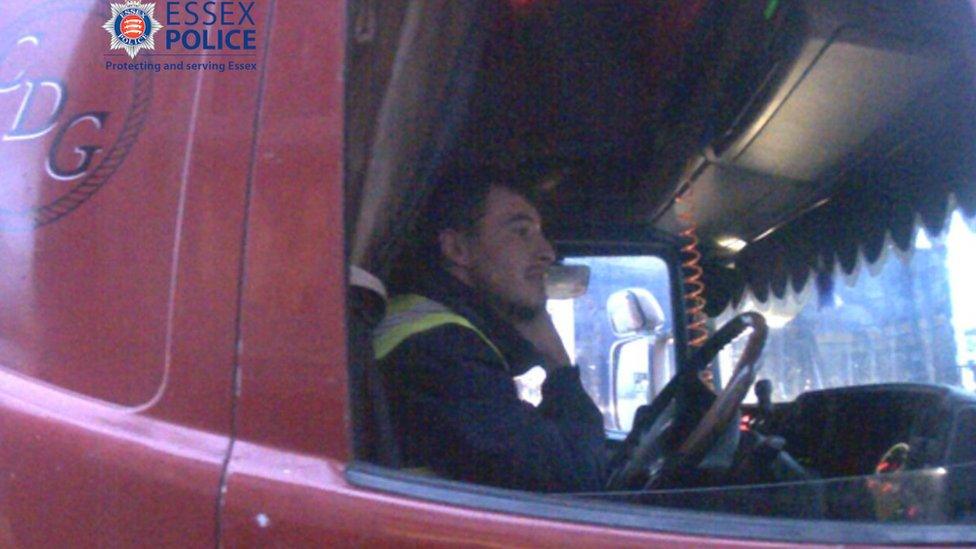
Haulier Christopher Kennedy captured by CCTV in the cab of his lorry arriving at Purfleet port in Essex on 11 October
Kennedy, 24, from Keady, County Armagh, was a lorry driver who was part of the smuggling ring.
He picked up containers with Vietnamese nationals inside, but not the one in which 39 people died in October last year.
Kennedy's role had been similar to Mo Robinson. He picked up containers in Essex which arrived from Belgium. His job was to deliver them to a remote location at Orsett, a 20 minute drive from the port.
Twice he did this in the two weeks before the smuggling operation which went wrong on October 23.
That is why he was on trial with the other drivers. He was part of the gang.
He claimed in court he did not know there were people in the containers he picked up on 11 and 18 October. He said thought he was carrying cigarettes.
In between those two dates, on 14 October, he was stopped near Calais in France with 20 Vietnamese people hiding in the back of his vehicle. He insisted they must have jumped in when he was not looking.
Two of the people ejected from his lorry were found dead nine days later in the trailer in Essex.
Kennedy was not charged with manslaughter.
He was charged with conspiracy to assist in unlawful immigration.
He denied the charge but the jury found him guilty.
Kennedy became a lorry-driver in his late teens, despite a number of driving convictions, including one when he was aged 13.
In May 2018, when he was 22, he was stopped in a lorry with the wrong number plate in Belfast and was later issued with an eight-month driving ban.
On the day the 39 bodies were discovered in a trailer in Essex, a friend sent him a message asking him if he knew what had happened.
He replied: "Dunno must have been 2 meany (many) and run out of air."
He was right. He was acutely aware of the risks involved in people smuggling. He knew what could go wrong.
However, it did not stop him being part of the gang, and taking his share of the illicit profits.
He thought he had got away with it. He was not arrested until November 22, four weeks after the police investigation began.
His crimes finally caught up with him.
- Published21 December 2020
